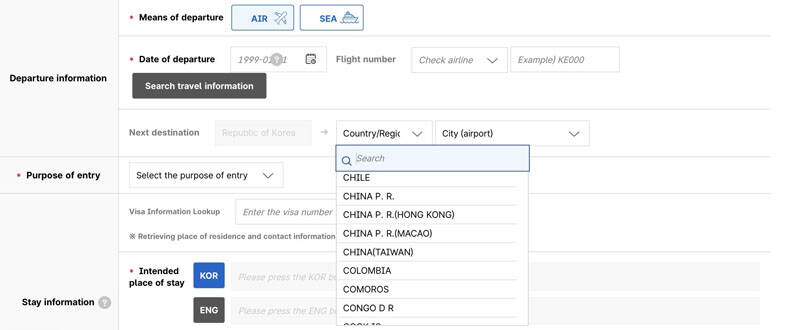Businessman Wang Rong-sheng, 61, recently returned to Taiwan on a break from his company in Shandong Province, China, and accompanied his 85-year-old mother on a visit to the Tainan City neighborhood that was their home for decades.
It was a wrenching experience because their old village of Shueijiaoshe (水交社), a 45-hectare residential compound for air force personnel and their dependents since 1948, has been razed.
Wang’s father, an air force officer, and his family settled there in 1950. Memories of his family’s Japanese-style home, the air raid shelter where he played hide-and-seek with his friends, and the stand where his mother would buy steamed buns for breakfast from a veteran from Henan Province all welled up as Wang was overcome with emotion.
Wang’s wife of 35 years could appreciate how her husband and his mother felt after seeing their home of nearly five decades turned into piles of debris as she also grew up in a village for military dependents, known in Taiwan as juan cun (眷村), that no longer exists.
Nostalgia is all many former residents of these juan cun have left as the villages fade into oblivion with the veterans passing away and the single-story dwellings, many from the Japanese colonial era, being torn down to make way for urban development projects.
Roughly 600,000 military personnel and their dependents from China settled in the juan cun — mostly quickly erected shanty villages — and the compounds were like miniature versions of China, with people from different provinces living next door to each other.
By 1982, fewer than 100,000 units in about 300 full-scale compounds were left nationwide. All that remains today are some 1,300 units on sites scattered around Taiwan, their obstinate residents holding out against having their houses torn down.
The Wangs moved out of Shueijiaoshe in the late 1990s in pursuit of modern comforts and new opportunities, but, as with many former juan cun residents, their village still exists in their memories, and some former residents are pushing to preserve their culture in more than just their minds.
Yu Lih-hua (喻麗華), a professor at National University of Tainan who was raised in Shueijiaoshe, and a group of Shueijiaoshe activists have scrambled to save parts of the village since Tainan City began dismantling the compound in 2007.
“We Shueijiaoshe people have lagged behind our counterparts in other juan cun around the country in conservation,” Yu said.
As Shueijiaoshe grew obsolete during this decade, the Tainan City Government quickly moved to reclaim the site and earmarked some NT$200 million (US$6.2 million) to clean up the village, build new roads and manage the land in a bid to turn it into an upscale residential area with a shopping mall.
But through the efforts of Yu and others to keep Shueijiaoshe’s memory alive, the city government left eight Japanese-style residences, the village’s elementary school and a number of old trees. The old residences will become museums and an ecological park will highlight the site’s century-old elm trees, decades-old mahogany trees and giant coconut trees.
A total of 23 juan cun have been preserved in similar ways around the country, and Yu says Shueijiaoshe could be selected by the Ministry of Defense as one of the up to 10 locations that will be developed into juan cun cultural preservation areas aimed at conserving the unique culture of these villages.
The ministry’s Military Dependents’ Service Department has asked local governments that want to participate in the NT$400 million project to submit their plans by March.
When Wang and his mother were touring their old village, they were guided by Chu Rong-mei (朱戎梅), who was also raised in Shueijiaoshe and now teaches Japanese at National Cheng Kung University in Tainan. She also wrote a book called Shueijiaoshe — A Juan cun in Memory that was published last December.
She said she forced herself to complete the book in two months, before an Asahi Shimbun crew visited Shueijiaoshe as part of an in-depth report on Taiwan’s juan cun and their culture.
“We could not let the Japanese outperform us in the effort to preserve our own unique but fading juan cun culture,” Chu said.
During the Wangs’ tour, Chu took them to an open field where several Japanese residences were located before they were leveled in 2007. The houses had built for Japanese naval officers and their dependents, but it turned out the area was home to even older relics.
Scores of old tombs were discovered there, some dating back to the Ming and Qing dynasties. The gravestones and wooden coffins with thick earthen and gravel shells, were unearthed in April as workers cleared the land for a new road.
Turning to another area of the now empty village, Chu identified a place where the homes of the first-generation pilots of the famous “Thunder Tiger” jet fighter squad were located.
The “Thunder Tiger” squad was a source of pride for Taiwan during the 1950s and 1960s and some squad members were national heroes for downing Chinese MiG-15 and MiG-17 fighters. The squad’s exceptional flying skills were also shown off at National Day parades and overseas shows between 1952 and 1989.
This “Thunder Tiger” squad was just one element that made village unique, Yu said. The name of Tainan Air Force Elementary School, attended by almost all the children in Shueijiaoshe before the 1970s, was changed to Tainan Municipal Chihkai Elementary School in 1967 in memory of air force hero Chou Chih-kai (周志開).
Chou was awarded medals by late dictator Chiang Kai-shek (蔣介石) in the early 1940s for downing six Japanese fighters before he was killed in an battle over Hubei Province in 1943.
Those who grew up in Shuei-jiaoshe all remember an open stadium where many movie stars from Taiwan and Hong Kong, even the US, visited to meet fans and cheer up the military troops.
But perhaps as enduring as any memory are the basic tastes and smells derived from the variety of food representing all corners of China that appeared in the village.
Through the efforts of Yu, Chu, and many other activists, those memories will now survive.

Taipei and Kaohsiung have extended an open invitation to Japanese pop star Ayumi Hamasaki after Chinese authorities abruptly canceled her scheduled concert in Shanghai. Hamasaki, 47, had been slated to perform on Saturday before organizers pulled the show at the last minute, citing “force majeure,” a move widely viewed as retaliation for Japanese Prime Minister Sanae Takaichi’s recent remark that a Chinese attack on Taiwan could draw a military response from Tokyo. Taipei Mayor Chiang Wan-an (蔣萬安) yesterday said the city “very much welcomes” Hamasaki’s return and would continue to “surprise” her. Hamasaki, who has a large global fan base, including

‘REGRETTABLE’: Travelers reported that Seoul’s online arrival card system lists Taiwan as ‘China (Taiwan),’ the Ministry of Foreign Affairs said The Ministry of Foreign Affairs yesterday urged South Korea to correct the way Taiwan is listed in its newly launched e-Arrival card system, saying the current designation downgrades the nation’s status. South Korea rolled out the online system on Feb. 24 to gradually replace paper arrival cards, which it plans to phase out by next year. Travelers must complete the electronic form up to 72 hours before entering the country. The ministry said it has received multiple complaints from Taiwanese travelers saying that the system lists Taiwan as “China (Taiwan)” in dropdown menus for both “place of departure” and “next

Starting next month, people who signed up for the TPass 2.0 program can receive a 15 percent rebate for trips on mid to long-distance freeway buses or on buses headed to the east coast twice every month, the Highway Bureau said. Bureau Director-General Lin Fu-shan (林福山) said the government started TPass 2.0 to offer rebates to frequent riders of public transportation, or people who use city buses, highway buses, trains or MRTs at least 11 times per month. As of Nov. 12, 265,000 people have registered for TPass 2.0, and about 16.56 million trips between February and September qualified for

HOW RUDE: Joe Biden’s Indo-Pacific defense chief condemned China’s response to Takaichi’s remarks as inappropriate and heavy-handed, while praising Japan’s nerve A former US defense official under former US president Joe Biden has voiced support for Japanese Prime Minister Sanae Takaichi for her remarks suggesting that Japan could help defend Taiwan, while describing Beijing’s response as “inappropriate.” Ely Ratner, who served as assistant secretary of defense for Indo-Pacific security affairs from 2021 to this year, said in a CNA interview that Takaichi’s comments on Taiwan simply reflected Japan’s position and stance on Taiwan. On Nov. 7, the Japanese prime minister commented in a parliamentary session that a Chinese attack on Taiwan could constitute “a situation threatening Japan’s survival” that could trigger a military